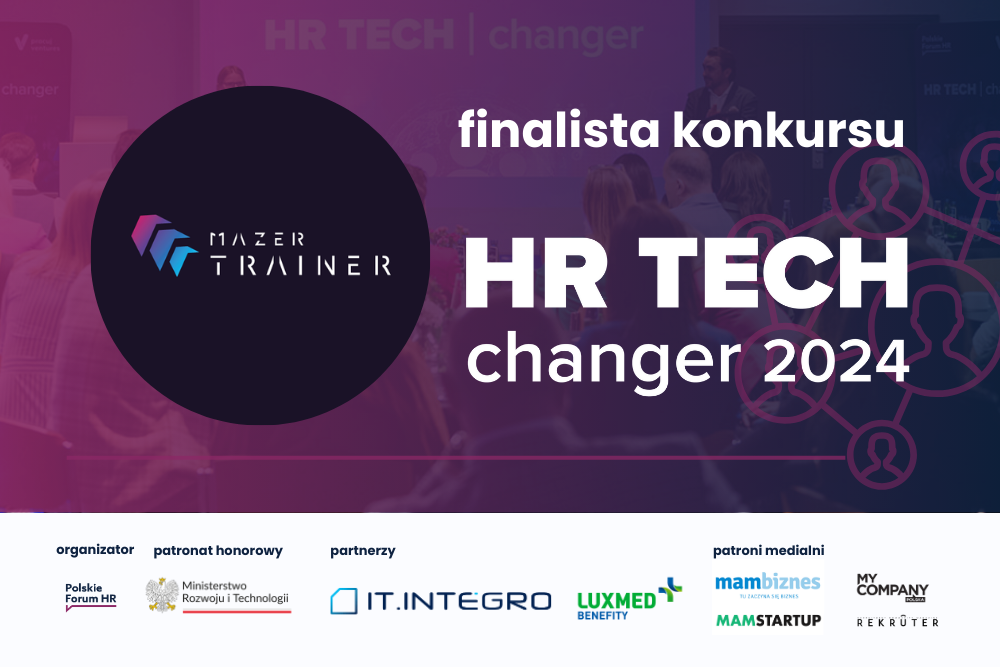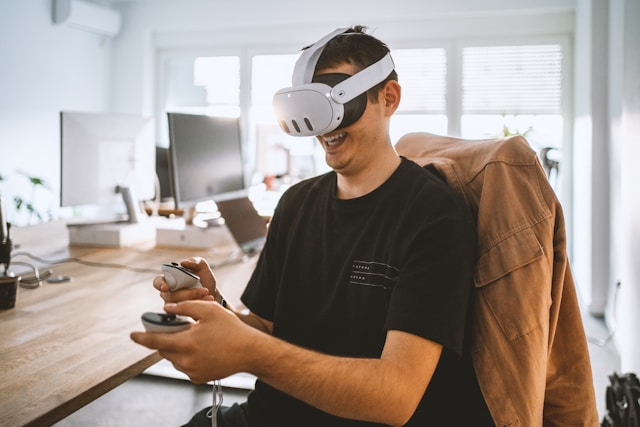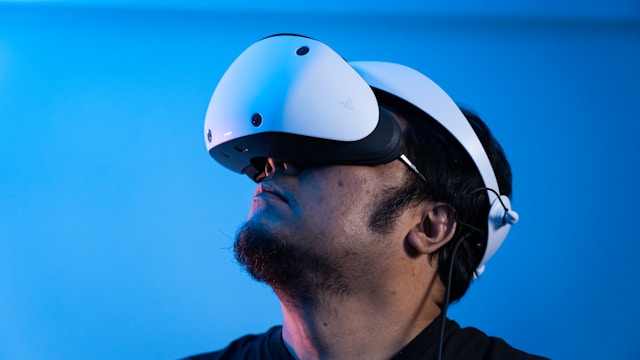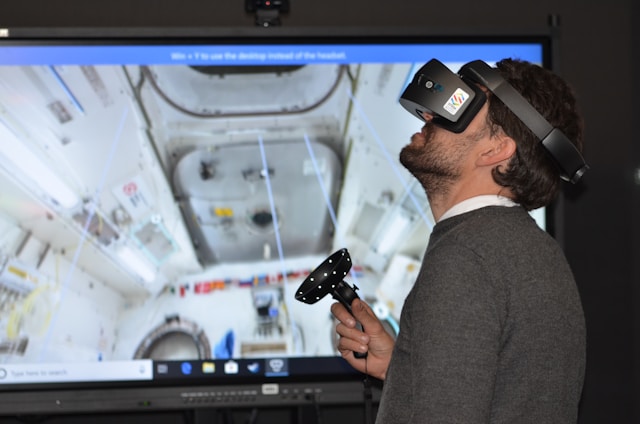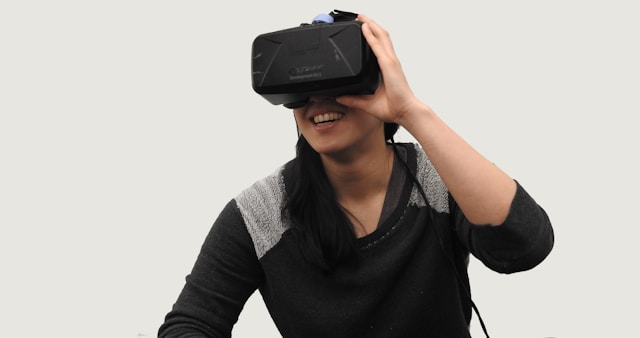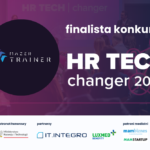5 Ways How Metaverse Affects Business
Table of Contents:
The idea of the metaverse has become very popular recently. It could change how we work and do business in ways we never imagined. The metaverse has a lot of potential to change traditional work environments and business operations. In this article, we present 5 examples of metaverse impact on business.
Impact of Metaverse on Business
Enhancing Processes and Performance
Using VR simulations, they can train employees on complex tasks. This approach has the potential to not only enhance safety but also result in significant savings in terms of time and money. Companies can also set up virtual showrooms to allow customers to see a product in person before making a purchase, or they can use the virtual world to launch advertising campaigns, activities, and discounts. Businesses can organize virtual events to promote their product and get more people to buy it. The world of metatextual media may be more captivating than the real thing, allowing firms to establish relationships with fresh individuals. It’s a good business idea to help people experience ads instead of just watching them. Before buying anything, people can explore, experience, and see all the components and qualities of various products.
New Designs and Market Expansion
There is great potential for brand marketing, advertising, sales, and a way to enter new markets in the metaverse. Consumers are incorporated into the design and idea process through virtual showrooms that provide an immersive experience. The company can use the metaverse’s immersive experience to make its vehicles more comfortable and safe. In the world of fashion, designers employ this technology to allow you to see fresh clothes and even walk the runway as a metaverse avatar, allowing consumers to revel in the spirituality of the entire collection. Likely, shopping online will no longer resemble today’s transactions in 10 or 15 years.
Unlock the future with Mazer: Your innovation partner.
Building an Engaged Community
The early companies in the metaverse can make the world look how they want it. It is possible for businesses to create a space where users would love to keep coming back. Businesses can entice folks in with various activities, fun and open spaces, exclusive offers, and other fun and inviting tactics. An online community that is welcoming and connected fosters brand loyalty and boosts sales.
The social connection is a crucial component of any CRM and Loyalty program. A metaverse community can unite folks, bringing them closer together, and revealing common passions for your brand or their way of life. One can employ unexpected tactics to engage their members, organize events, or integrate their points or loyalty card into the platform, allowing consumers to earn or burn points. Metaverse NFTs can be used for many different things in loyalty programs.
Inclusion for a Diverse and Aging World
When people discuss gaming, computers, technology, and new ways of using things, it’s important to remember that it’s not just for kids. There is an emphasis on older adults who don’t have the same ability to navigate digitally in the metaverse. Instead of thinking of older people as people who won’t be able to participate fully in new technology, we can let them become a part of it through an avatar. Organizations such as Rendever and the AARP are already utilizing metaverse technology to provide assistance to older adults. We’re seeing in Europe that soon, many societies will have a higher proportion of aging people than younger ones, and this’s how they can stay connected.
The Role of Tokens
As national digital property rights are enacted, they can spawn new business models related to digital ownership, portable and composable digital assets, and deconcentrated communities. With the rise of NFTs, new business models can be created. NFTs have been considered purely digital goods by many companies, and they have tried to extend their existing brands into the market.
Metaverse and Its Impact on Business: Summary
The question of whether the metaverse is beneficial for enterprises is met with a resounding “yes.” Companies can use technology to make their customers feel like they’re part of something, build relationships, and sell more things. Moreover, enterprises can utilize the metaverse as a platform for executing marketing campaigns, implementing customer service initiatives, and other related activities. Anyone with an ambition to conquer a new market and stand out from the competition should at least consider joining the metaverse to enjoy the promised opportunities.
Analysts’ forecasts indicate that by 2024, the value of the metaverse market will reach $800 billion, according to the Deloitte Tech Trends 2023 report. By 2030, we may spend more time in the metaverse than in the physical world. People may apply for jobs, earn a living, socialize with friends, shop, and even get married using the virtual capabilities of the metaverse. Your competition is already here, gathering more customers.
What opportunities does the metaverse offer for brand marketing and entering new markets?
The metaverse provides opportunities for immersive brand marketing, advertising, and sales, offering a way to enter new markets through virtual showrooms and consumer engagement.
How does the metaverse contribute to building an engaged community for businesses?
Companies in the metaverse can create a welcoming space through various activities, open spaces, and exclusive offers, fostering brand loyalty, boosting sales, and enhancing CRM and loyalty programs.
What role do tokens play in metaverse business innovations?
Tokens, especially NFTs, can spawn new business models related to digital ownership, portable digital assets, and deconcentrated communities, creating opportunities for companies to extend their brands into the market.
Are you considering implementing innovations or new technologies in your company? Are you interested in using VR, metaverse, or AR?
Unlock the future with Mazer: Your innovation partner.

Author: Rafał Siejca
Rafal has over twenty years of corporate experience, including roles at Millennium Bank, Comarch, and leading software teams at PZU, one of Europe’s largest insurance companies. As one of Poland’s few true VR experts with a decade of experience, he ensures timely, high-quality project delivery as CEO and CTO.


